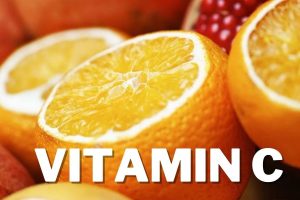
In our fast-paced and demanding world, maintaining optimal cognitive function has become increasingly important. Whether studying for exams, excelling in our careers, or simply staying mentally sharp as we age, the desire to enhance cognitive performance is widespread. Enter nootropics – a category of supplements and substances gaining popularity for their potential to boost focus, memory, and overall brain function. In this article, we will explore the world of nootropics and how they can be used to optimize cognitive performance and unlock our mental potential.
1- Understanding Nootropics:
Nootropics, often called “smart drugs” or “cognitive enhancers,” support brain function, memory, creativity, and focus. They can range from natural compounds found in food and herbs to synthetic substances developed for specific cognitive effects. Nootropics work by targeting neurotransmitters, receptors, and other pathways in the brain, promoting enhanced cognitive abilities.
2- Popular Nootropic Products:
2-1 Caffeine
Caffeine, a naturally occurring compound found in coffee beans, tea leaves, and various other plant sources, has earned its reputation as perhaps the most well-known and widely consumed nootropic in the world. With its stimulating effects on the central nervous system, it is sought after for its ability to enhance alertness, focus, and mental energy.
The magic behind caffeine lies in its mechanism of action; it works by blocking adenosine receptors in the brain, a neurotransmitter responsible for promoting relaxation and drowsiness. By inhibiting the binding of adenosine to its receptors, caffeine prevents its calming effects, leading to increased wakefulness and a heightened state of arousal. This often translates into improved cognitive performance, increased productivity, and even a temporary boost in mood, making caffeine a favored choice for people seeking a quick and accessible cognitive enhancer. However, as with any substance, moderation is key, as excessive consumption of caffeine can lead to negative side effects like jitteriness, anxiety, and disrupted sleep patterns.

Despite these potential drawbacks, the popularity of caffeine endures, and its role as a widely available and effective cognitive enhancer remains undisputed.
2-2 L-theanine
L-theanine, a naturally occurring amino acid primarily found in green tea, has gained recognition for its unique capacity to promote relaxation and a sense of calmness without inducing drowsiness.
As a complementary partner to caffeine, L-theanine offers an intriguing synergistic effect that has captured the interest of researchers and enthusiasts alike. When combined with caffeine, L-theanine can counterbalance some of the potential negative side effects of caffeine consumption, such as jitters and restlessness. The synergy between these two compounds can lead to an enhanced cognitive experience, characterized by improved focus, heightened attention, and increased mental clarity.
The interplay between L-theanine and caffeine is believed to be a result of their influence on neurotransmitters in the brain. While caffeine blocks adenosine receptors to promote wakefulness, L-theanine interacts with other neurotransmitters, including GABA, serotonin, and dopamine, contributing to its relaxation-inducing properties. This balance of stimulation and relaxation can pave the way for a smoother and more sustainable cognitive boost, making the combination of L-theanine and caffeine a sought-after choice for individuals looking to maximize their mental performance.
Furthermore, L-theanine’s potential to reduce stress and anxiety can also contribute to a more focused and productive mindset, as excessive stress can hamper cognitive abilities. As research continues to explore the potential benefits of L-theanine and caffeine, their combination remains an exciting area of interest for those seeking natural and accessible methods to enhance their cognitive function and overall well-being. However, as with any dietary supplement or nootropic, it is essential to be mindful of individual sensitivities and consult with a healthcare professional before incorporating L-theanine and caffeine into a regular routine.
2-3 Bacopa monnieri
Bacopa monnieri, a revered herb in traditional Ayurvedic medicine, has earned a reputation for its remarkable cognitive-enhancing properties. Its historical use as a potent nootropic has piqued the interest of modern researchers, leading to numerous studies exploring its potential benefits on cognitive function. One of the key areas where Bacopa monnieri shines is in memory enhancement. Research suggests that regular supplementation with this herb may lead to improvements in both short-term and long-term memory, making it a valuable ally for students, professionals, and individuals seeking to support their cognitive abilities as they age. Moreover, Bacopa monnieri has shown promise in enhancing attention and focus, which can be particularly valuable in today’s fast-paced and demanding world where sustained concentration is often required for optimal performance.
Another noteworthy aspect of Bacopa monnieri’s cognitive effects is its potential to reduce anxiety. Stress and anxiety can significantly impair cognitive function, leading to decreased productivity and mental clarity. By acting as an adaptogen, Bacopa monnieri may help the body adapt to stress more effectively, promoting a sense of calmness and tranquility without sedative effects. This combination of cognitive enhancement and anxiety reduction makes Bacopa monnieri an appealing option for those seeking a holistic approach to improve mental performance and overall well-being. However, as with any herbal supplement, individual responses may vary, and it is essential to consult with a healthcare professional before incorporating Bacopa monnieri into one’s daily routine, especially for those taking medications or with pre-existing medical conditions.

While Bacopa monnieri shows great promise as a cognitive enhancer and anxiety-reducer, it’s essential to note that its effects may not be immediate. Regular and consistent use over several weeks is often recommended to experience its full benefits. Additionally, since herbal supplements are not regulated in the same way as pharmaceutical drugs, it is crucial to choose a reputable and trustworthy source to ensure product quality and potency. By approaching Bacopa monnieri with informed decision-making and patience, individuals may discover a valuable natural tool to support their cognitive health and well-being.
2-4 Omega-3 fatty acids
Nootropics, a class of substances known for their cognitive-enhancing properties, have garnered significant attention in recent years. Among the natural compounds that fall under this category, omega-3 fatty acids, commonly found in fatty fish like salmon, stand out as essential contributors to brain health. These fatty acids, particularly docosahexaenoic acid (DHA) and eicosapentaenoic acid (EPA), play a vital role in maintaining the structural integrity of brain cells and supporting the efficient communication between neurons. Studies have linked omega-3 fatty acids to improved cognitive function, memory retention, and even mood regulation, making them a fundamental component of any comprehensive nootropic regimen.
In the realm of nootropics, omega-3 fatty acids‘ significance stems from their ability to support overall brain health and optimize cognitive processes. Research suggests that regular consumption of omega-3s can promote neuroplasticity, the brain’s ability to adapt and form new connections, which is essential for learning and memory retention. Furthermore, these fatty acids have been associated with reducing inflammation in the brain, potentially contributing to better cognitive resilience and protection against age-related cognitive decline. In combination with other nootropics or cognitive-enhancing practices, such as exercise, adequate sleep, and mental stimulation, incorporating omega-3 fatty acids into one’s diet can create a holistic approach to support and enhance cognitive function throughout life.
While nootropics continue to intrigue researchers and the general public alike, the role of omega-3 fatty acids in cognitive health remains a prominent and well-established area of interest. As an accessible and natural nootropic, incorporating omega-3-rich foods or high-quality supplements into one’s daily routine is a practical step towards maintaining brain health and optimizing mental performance. Nevertheless, it’s essential to remember that nootropics are not a one-size-fits-all solution, and individual responses to these compounds can vary. As with any supplementation, consulting with a healthcare professional is essential to ensure proper dosage and to address any potential interactions with medications or existing health conditions. By combining knowledge about nootropics with personalized care, individuals can take proactive steps towards unlocking their cognitive potential and fostering a healthier brain for years to come.
2-5 Rhodiola Rosea
Rhodiola Rosea, an adaptogenic herb native to the cold regions of Europe and Asia, has a rich history of use in traditional medicine systems like Traditional Chinese Medicine and Scandinavian herbal medicine. In recent years, its reputation as a potent cognitive enhancer and stress-reducing agent has caught the attention of researchers and individuals seeking natural ways to boost mental performance and combat the effects of stress. As an adaptogen, Rhodiola Rosea is known for its unique ability to help the body adapt to various stressors, be it physical, emotional, or environmental, by promoting a state of balance and resilience. By doing so, it may counteract the negative impacts of chronic stress on the brain, which can lead to mental fatigue, decreased focus, and impaired cognitive function.
One of the key reasons Rhodiola Rosea has become a focus of interest in the realm of nootropics is its potential to enhance mental performance and reduce fatigue. Research suggests that the active compounds found in Rhodiola Rosea, such as rosavin, salidroside, and rosin, may modulate neurotransmitters like serotonin, dopamine, and norepinephrine, which play critical roles in mood regulation, motivation, and cognitive processes. This modulation is believed to contribute to Rhodiola’s ability to improve cognitive function, memory retention, and overall mental clarity, making it a popular choice among students, professionals, and anyone seeking to optimize their cognitive abilities. Additionally, Rhodiola Rosea’s fatigue-reducing effects may be beneficial for individuals dealing with physical or mental exhaustion, providing a natural boost to energy levels without the jittery side effects often associated with stimulants.
Moreover, the adaptogenic nature of Rhodiola Rosea may extend its benefits beyond cognitive enhancement and fatigue reduction. It is believed to possess neuroprotective properties that can help shield the brain from oxidative stress and inflammation, factors known to contribute to cognitive decline and various neurological disorders. Furthermore, its stress-reducing effects may promote better sleep quality and overall emotional well-being, which are crucial factors for maintaining optimal cognitive function. As with any nootropic or supplement, individual responses to Rhodiola Rosea may vary, and it is advisable to consult with a healthcare professional before incorporating it into a regular routine, especially for those with underlying health conditions or taking medications. Nevertheless, the growing body of research and anecdotal evidence supporting the cognitive and stress-related benefits of Rhodiola Rosea make it a compelling addition to the expanding range of nootropics available to those seeking natural ways to improve their mental performance and overall quality of life.
2-6 Ginkgo biloba
Ginkgo biloba, a well-known and revered herb in traditional Chinese medicine, has gained popularity in the modern world for its potential to enhance cognitive function, memory, and promote healthy blood flow to the brain. Derived from the leaves of the ancient Ginkgo biloba tree, this herbal supplement contains a rich blend of flavonoids and terpenoids, powerful antioxidants that are believed to offer a myriad of health benefits.
One of the primary reasons for Ginkgo biloba’s popularity as a nootropic is its potential to support cognitive function. Studies have explored the herb’s impact on various cognitive tasks, such as attention, concentration, and information processing. The active compounds in Ginkgo biloba are thought to have a positive influence on neurotransmitter activity, particularly acetylcholine, a crucial chemical messenger involved in memory and learning. By promoting healthy acetylcholine levels and function, Ginkgo biloba may aid in improving memory recall and retention, making it an attractive option for those seeking natural cognitive support.

Another compelling aspect of Ginkgo biloba’s cognitive effects lies in its potential to protect brain health and support neuronal integrity. As a potent antioxidant, Ginkgo biloba helps neutralize harmful free radicals that can damage brain cells and impair cognitive function over time. Moreover, research suggests that Ginkgo biloba may have anti-inflammatory properties, which can further contribute to its neuroprotective effects. By shielding the brain from oxidative stress and inflammation, Ginkgo biloba may help preserve cognitive abilities and support healthy brain aging.
Beyond cognitive benefits, Ginkgo biloba is also renowned for its potential to enhance blood flow to the brain and throughout the body. By promoting vasodilation and inhibiting platelet aggregation, Ginkgo biloba may improve circulation, allowing oxygen and nutrients to reach the brain more efficiently. This increased blood flow can have a positive impact on overall cognitive performance and alertness, as well as supporting other bodily functions that rely on a healthy blood supply.
While Ginkgo biloba holds promise as a natural cognitive enhancer and brain health supporter, it’s essential to consider individual factors and potential interactions with medications before incorporating it into a daily routine. Consulting with a healthcare professional is advisable, especially for those with existing medical conditions or taking blood-thinning medications. Additionally, the quality and formulation of Ginkgo biloba supplements can vary, so choosing a reputable source and following recommended dosages is crucial for optimal results. Overall, Ginkgo biloba remains an intriguing herbal option for those looking to boost their cognitive abilities, support brain health, and foster overall well-being.
3- Utilizing Nootropics Safely:
In today’s fast-paced and demanding world, many individuals are seeking ways to enhance their cognitive abilities and improve mental performance. This quest for cognitive enhancement has led to the rising popularity of nootropics, a class of substances believed to have cognitive-enhancing properties. From natural compounds found in plants to synthetic chemicals designed to optimize brain function, the world of nootropics offers a wide array of options for those looking to boost focus, memory, and overall cognitive prowess.
While the potential benefits of nootropics are undoubtedly appealing, it is essential to approach their use with caution and mindfulness. Ensuring the safe and responsible utilization of nootropics is of paramount importance to protect one’s health and well-being.

Whether you are a student looking to excel in your academic pursuits, a professional seeking a competitive edge in the workplace, or simply someone interested in optimizing their brain health and cognitive function, this exploration of nootropics will provide valuable insights and guidelines to help you make informed decisions about incorporating these substances into your daily routine. From understanding the potential risks and side effects to identifying reputable sources and dosing strategies, embracing nootropics with a balanced and educated approach can unlock their true potential as tools for enhancing cognitive performance and fostering overall mental well-being.
3-1 Research and Consultation
Before incorporating any nootropic into your routine, conduct thorough research and consult with a healthcare professional or qualified expert. They can provide guidance based on your specific needs, health status, and potential interactions with medications.
3-2 Start Low and Go Slow
Begin with a low dosage of any new nootropic to assess your body’s response and tolerance. Gradually increase the dosage if necessary, while monitoring for any adverse effects.
3-3 Quality and Safety
Choose reputable brands and products to ensure quality and safety. Look for third-party testing, and transparent ingredient lists, and adhere to recommended dosage instructions.
3-4 Lifestyle Factors
Remember that nootropics are not a magic solution. Optimal cognitive function is also influenced by lifestyle factors such as regular exercise, healthy sleep patterns, stress management, and a balanced diet.
Conclusion
Nootropics offer a potential avenue to enhance cognitive performance, focus, and memory. From natural compounds like caffeine and L-theanine to herbal extracts and omega-3 fatty acids, these substances have gained popularity for their potential cognitive benefits. However, it is essential to approach nootropics with caution, conducting thorough research, consulting experts, and prioritizing safety. Additionally, incorporating healthy lifestyle habits alongside nootropic use can contribute to optimal cognitive function. Remember, while nootropics may hold promise, they should be part of a holistic approach to enhancing mental performance and overall well-being.




